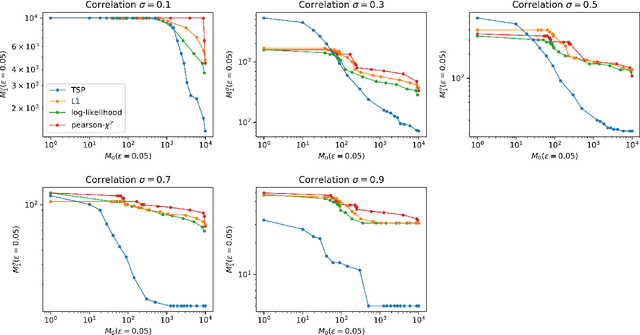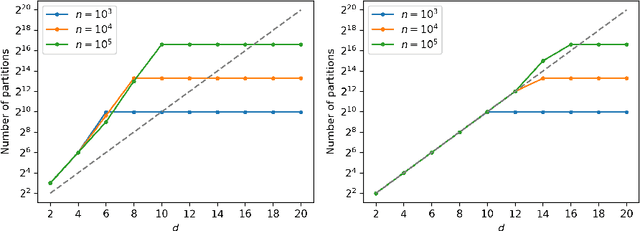Data-Driven Representations for Testing Independence: Modeling, Analysis and Connection with Mutual Information Estimation
Paper and Code
Oct 27, 2021



This work addresses testing the independence of two continuous and finite-dimensional random variables from the design of a data-driven partition. The empirical log-likelihood statistic is adopted to approximate the sufficient statistics of an oracle test against independence (that knows the two hypotheses). It is shown that approximating the sufficient statistics of the oracle test offers a learning criterion for designing a data-driven partition that connects with the problem of mutual information estimation. Applying these ideas in the context of a data-dependent tree-structured partition (TSP), we derive conditions on the TSP's parameters to achieve a strongly consistent distribution-free test of independence over the family of probabilities equipped with a density. Complementing this result, we present finite-length results that show our TSP scheme's capacity to detect the scenario of independence structurally with the data-driven partition as well as new sampling complexity bounds for this detection. Finally, some experimental analyses provide evidence regarding our scheme's advantage for testing independence compared with some strategies that do not use data-driven representations.
 Add to Chrome
Add to Chrome Add to Firefox
Add to Firefox Add to Edge
Add to Edge